Ukrainian President Volodymyr Zelenskyy has reversed his decision to strip the country’s anti-corruption agencies of their independence after an intense public backlash and growing international criticism.
On Tuesday, Zelenskyy signed into law a bill transferring control of the National Anti-Corruption Bureau (NABU) and the Specialized Anti-Corruption Prosecutor’s Office (SAP) to the prosecutor general, a position held by one of his close allies.
- Ukrainian President Zelenskyy reversed his law that gave the prosecutor general control over anti-corruption agencies after massive public protests.
- The initial bill sparked Ukraine’s largest anti-government protests since Russia's 2022 invasion.
- Zelenskyy submitted a new draft law restoring agency independence but retained minor measures like enhanced polygraph tests for officials.
The move sparked outrage from Ukrainian civil society and citizens, with hundreds of people gathering in Kyiv for the biggest anti-government protest since the start of Russia’s full-scale invasion in February 2022.
Volodymyr Zelenskyy reversed his decision to transfer control of the anti-corruption agencies
Image credits: Antonio Masiello/Getty Images
By Thursday, after two days of mounting protests and warnings from European leaders, Zelenskyy announced that he had submitted a new draft law to reverse the controversial changes.
“We heard what people are saying these days, what people are saying on social networks, to each other, on the streets. All this is not in vain. We have analyzed all the concerns, all the aspects of what should be changed,” Zelenskyy said in a video address.
Zelenskyy said that after a day of talks with affected parties, the new bill proposal will be “a response to the situation, and will provide strength to the law enforcement system.”
Today started with the meeting with government officials and representatives of law enforcement agencies.
Of course, everyone has heard what people are saying these days – on social media, to each other, on the streets. It’s not falling on deaf ears. We analyzed all concerns,… pic.twitter.com/Rcrp2MOXhP
— Volodymyr Zelenskyy / Володимир Зеленський (@ZelenskyyUa) July 23, 2025
“The most important thing is real tools, no Russian connections, and the independence of NABU and SAPO. The bill will be submitted to the Verkhovna Rada of Ukraine today,” Zelensky said.
“All the norms for the independence of anti-corruption institutions will be there,” he reassured.
The bill still has to be passed by parliament, with some activists warning that it risks being stalled by Zelenskyy’s own MPs.
Protesters had filled the streets of Kyiv, Lviv, Dnipro, and Odesa, carrying placards that read: “Justice must be independent” and “We chose Europe, not autocracy.”
Ukrainians took to the streets to protest against the new bill
Image credits: Vitalii Nosach/Getty Images
European officials also voiced alarm over the original law.
A spokesperson for European Commission President Ursula von der Leyen said Thursday that the bloc “welcomed” Zelenskyy’s decision to address concerns, emphasizing that the rule of law and the fight against corruption are core elements of Ukraine’s path toward EU membership.
Marta Kos, the EU commissioner for enlargement, was more blunt earlier in the week, calling the prosecutor general’s new oversight powers a “serious step back” for Ukraine’s democratic reforms.
Ambassadors from the G7 nations reportedly requested urgent meetings with Ukrainian officials to discuss the implications of the law.
Zelenskyy initially defended the law, accusing some agency employees of collaborating with Russian intelligence and arguing that tighter control was necessary to protect national security.
Image credits: Antonio Masiello/Getty Images
“There is no rational explanation for why criminal proceedings worth billions have been ‘hanging’ for years,” he said, adding that the prosecutor general would ensure “the inevitability of punishment” for those who broke the law.
Critics dismissed Zelenksyy’s claims as a pretext for undermining independent investigations. “First, we take it away, and then we say that it must be guaranteed. So why was all this necessary?” asked Opposition MP Oleksiy Goncharenko.
Protestors are still wary. “Until we see the text, it’s hard to assess it, or even whether it will happen. There’s no faith in Zelenskyy! We need to keep pushing,” Ukrainian war veteran Oleh Symoroz said on social media.
Under the new draft law submitted Thursday, the prosecutor general would lose the additional powers granted earlier in the week, while minor procedural checks, such as enhanced polygraph tests for anti-corruption officials, would remain.
Officials will be required to take a polygraph test every two years
Image credits: Scott Peterson/Getty Images
People with access to state secrets would be required to undergo the test every two years. They will be conducted by internal control units using a methodology approved by the Security Service of Ukraine (SBU).
“They heroically solved the problems they had just as heroically created. Great imitators,” wrote Opposition MP Yaroslav Zheleznya.
Anti-corruption reform has long been a critical condition for Ukraine’s deepening ties with Western allies.
NABU and SAP were established in 2014 and 2015 with support from the European Union and the International Monetary Fund as part of a broader effort to combat entrenched graft following the ousting of pro-Russian president Viktor Yanukovych.
Ten years later, those institutions remain central to Kyiv’s hopes of securing EU membership and sustaining international support for its war effort.
Well, at least he owns up and fixes mistakes instead of outright denying them.
Well, at least he owns up and fixes mistakes instead of outright denying them.


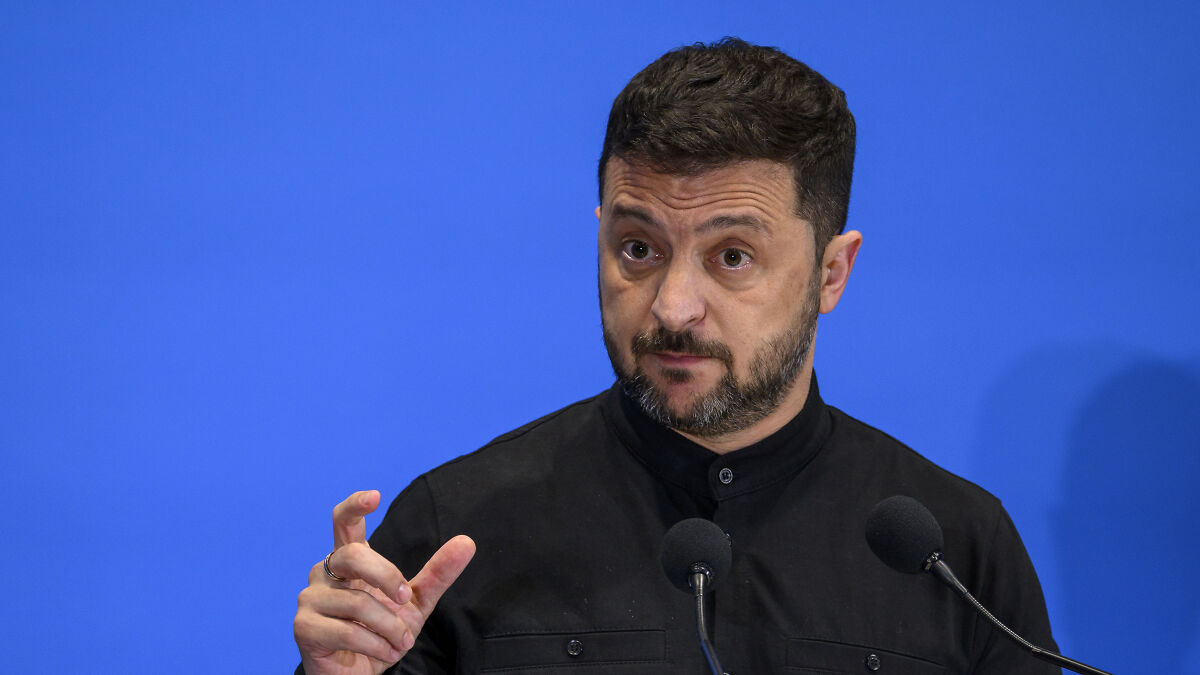
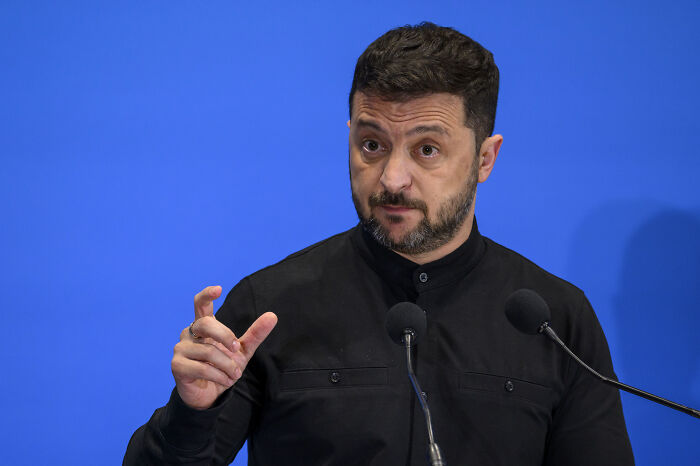
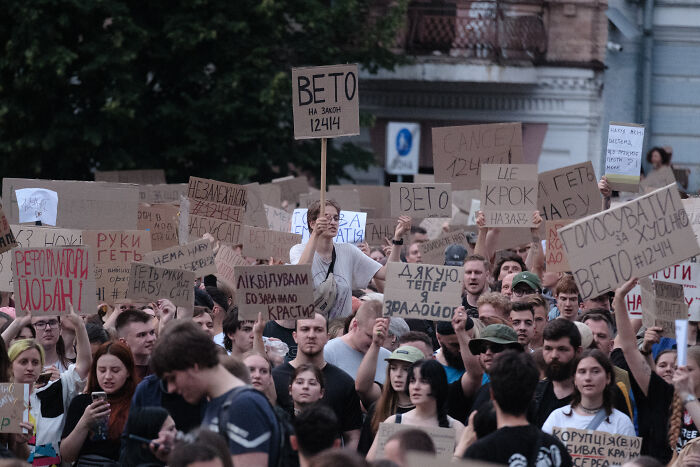
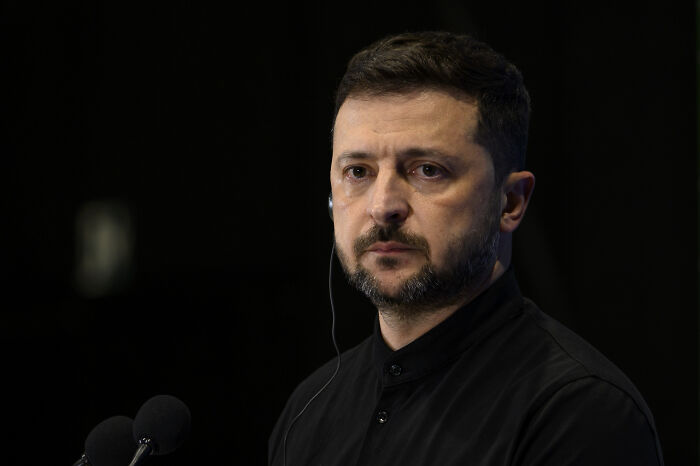
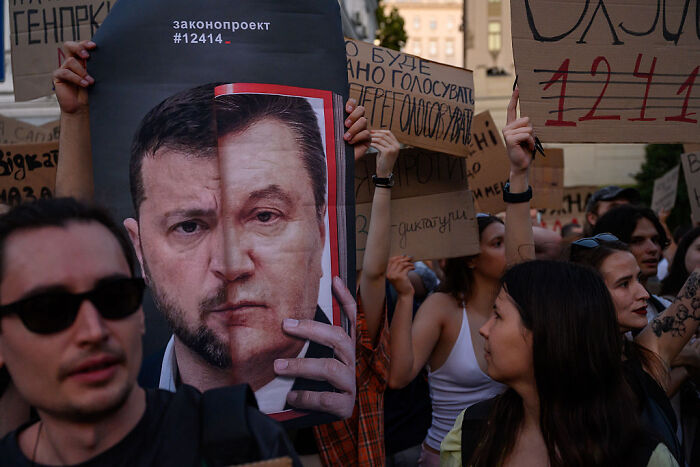



15
1